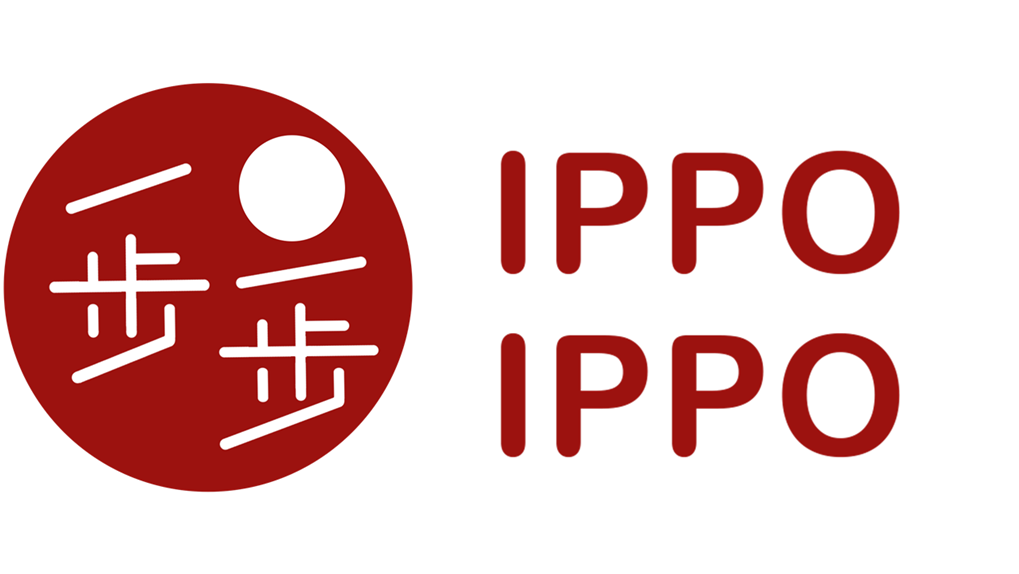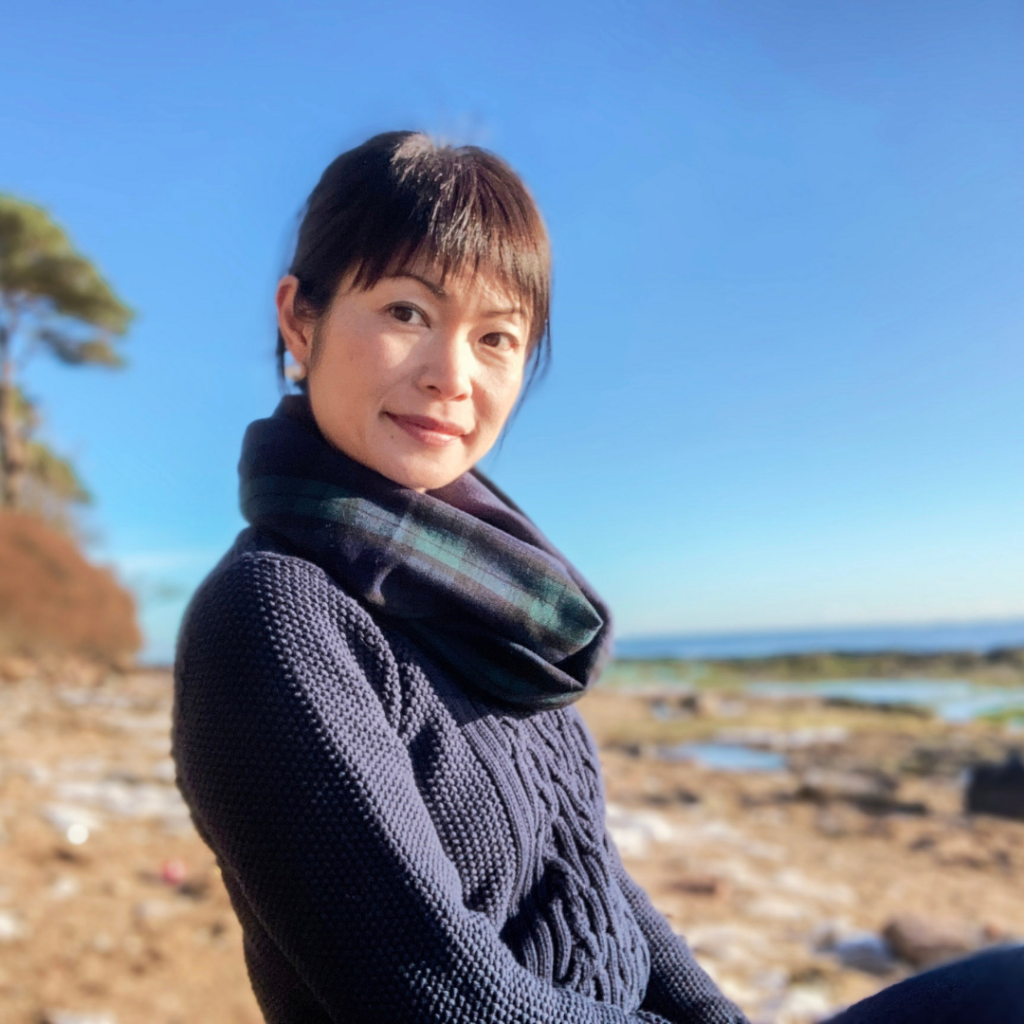Recently, I caught up with Hitomi Kobayashi, with whom I'm running two Tadoku Taster events this April. Hitomi-san has been teaching Japanese for over 20 years, and is a published author of Japanese textbooks! Find out about her work here, or simply read on to find out what we chatted about.
Note: Hitomi-san gave her answers in Japanese, so I've added rough English translations below. If you know some Japanese and are up for a challenge, see if you can follow her original answers! I recommend using the 10ten Japanese Reader (Chrome | Firefox | App Store) to help with any new words or kanji.
Do you have a favourite book?
はい、あります!シェル・シルヴァスタイン(Shel Silverstein)の、『ぼくを探しに』(The Missing Piece)です。10歳ぐらいのとき、はじめてこの本を読みました。歯医者に行ったとき、そこに小さな本棚がありました。表紙の絵がかわいかったので、この本を選びました。「ぼく」が自分の「かけら」を探しに行くお話です。シンプルな文の中に、とても深いメッセージがあります。初めて読んだとき、そのメッセージの深さに衝撃を受けました。それからずっと、何か悩んでいることがあるとき、この本を開きます。必ず、そしていつも違うメッセージがもらえるからです。
Yes, I do! It’s The Missing Piece, by Shel Silverstein. I read it for the first time when I was 10. When I went to the dentist, there was a small bookshelf. The cover was cute, so I picked it out.
It’s the story of a young boy who goes searching for his “missing piece”, and although it’s written simply, it has a deep message. When I first read it, the depth of that message had a big impact on me. Since then, whenever I’ve got something I’m worried about, I open that book. I do this because whenever I do, I can always get a different message from it.
How long have you been teaching Japanese?
1999年(20世紀ですね!)に教えることを始めました。日本で、大学院修士の1年生のときです。ブラジルから日本に来た日系人の会社員でした。その人は8年ぐらい日本にいましたが、話すことは得意なのに、書くことが苦手でした。話すことと書くことは同じアウトプットのスキルなのに、大きなギャップがあることに驚いて、作文教育に興味を持ちました。それで、修士論文で作文のフィードバックの効果について研究しました。それからずっと日本で2018年まで教えていました。イギリス人と結婚して子どもが生まれたので、2018年6月にエディンバラへ来ました。
I started teaching in 1999 – the 20th century! This was when I was doing my masters degree in Japan, and my student was a Japanese-Brazilian person who had come from Brazil to work at a company in Japan. They’d been in Japan for around eight years and were good at speaking, but no good at writing. I was really shocked at the gap in their skills, as both speaking and writing are types of linguistic output, so I became interested in teaching written composition. From then, I made the effectiveness of giving feedback on written compositions the topic of my master’s thesis, and since then I taught Japanese right up till 2018. Since I married a Brit and had a child together, I came to Edinburgh in June of 2018.
Do you have a favourite Japanese saying?
「努力に勝る天才なし」という言葉が好きです。中学校の数学の先生が、私が卒業するときにくれた言葉です。数学が苦手だったので(今でも笑)、放課後に学校に残って自分で勉強していました。わからないことがあるとき、その先生に質問しました。そのおかげで、行きたい高校の試験に合格できました。先生が努力する私を見ていてくれたことがうれしかったし、努力することの大切さをシンプルに表現したこの言葉が気に入りました。

“Doryoku ni masaru tensai nashi” – there’s no genius that bests hard work. This saying is one that was passed down to me by my middle school teacher when I graduated. I was (and still am!) bad at maths, so I used to stay behind and study after school. I’d ask that teacher whenever I had something I didn’t understand. Thanks to them, I was able to pass the entrance exam to the high school I wanted to attend. I was really pleased that the teacher had noticed my hard work, so I like this saying that expresses the importance of putting in effort.
Have you taught tadoku before?
はい!日本の大学でいろいろな授業を教えていました。その中の一つが初級の読み書きの授業です。人が何かを楽しく勉強することは、その人の中にあるモチベーションから始まります。初級の学生にとって、読むことは時間がかかる、大変な作業です。だから、日本語で読むことを少しでも楽しくしたいと思って、多読をしていました。教室に持っていったいろいろなやさしいレベルの本を学生が読んでいる間、私もその中からいくつか読むことがあります。おもしろく読めるものが多くて、私も多読の授業を楽しみにしていました。
Yes! I used to teach all kinds of university classes in Japan, one of which was an elementary reading and writing class. For someone to enjoy studying something, they first of all need motivation within themself. For elementary students, reading takes a lot of time, and is hard going. This is why I did tadoku: to try and help them enjoy themselves even just a little more. While students are reading all the easy-to-read books I’ve taken along, I sometimes read them too. There are so many books you can enjoy reading, so I had a good time in our classes too.


Books that Hitomi-san has used for teaching tadoku
What tips do you have for people learning Japanese?
自分の興味があるトピックで日本語を使うチャンスをふやすといいですよ。例えば、日本のラーメンが好きだったら、日本のインスタントラーメンの日本語の作り方を読んで(翻訳のアプリを使いましょう!)、ラーメンを作ってみる。ラーメンの作り方を説明しているYouTubeを探して見てみる。「新横浜ラーメン博物館」のウェブサイトを見て、ラーメンの歴史について調べてみる…など。このような活動の中で見つけた新しい語彙や表現って、勉強したくなりますよね?自分の興味を活かして、モチベーションのある勉強をしましょう!
I recommend increasing your opportunities to use your Japanese in relation to something you’re interested in. For example, if you like Japanese ramen, try reading the Japanese cooking instructions (using a translation app!) and try making them. You could also look up YouTube videos on how to make ramen, look at the Shin-Yokohama Ramen Museum website, find out about the history of ramen…and with all the new words and phrases you discover through these kinds of activities, don’t you think you’ll start feeling like studying? I recommend finding a way of studying that keeps you motivated while making the most of your interests!
What’s your favourite thing about life in Edinburgh?
おもしろいチャリティーショップがたくさんあることです!小さい子どもがいるので、服とかおもちゃを買ったりします。子どもの服はすぐに着られなくなるので、新品じゃなくても問題ないです。古着でも素敵なデザインの服は多いです。日本にもリサイクルショップはあります。でも、イギリスと違って、要らないものを売ってお金をもらうところなんです。イギリスの、要らないものを寄付する方法はとてもいいと思います。家を片付けたい人は物が減ってうれしいし、その物が欲しい人は安く買えてうれしいし、チャリティー団体はお金がもらえてうれしい。日本ではこういうビジネスを「三方よし」といいます。日本に昔からある、ビジネスの哲学です。
I love all the interesting charity shops! I have a small child, so I often buy clothes and toys there. As kids outgrow clothes quickly, they don’t need them to be new, and there are lots of lovely clothes that are second hand. There are “recycle shops” in Japan too, but unlike in the UK, you sell your old things in return for money. I like the way people donate things they don’t need anymore in the UK. Those who want to tidy their homes can get rid of things, those who want more things can buy them cheaply, and the charities can receive money. In Japan, this kind of business is called sanpō yoshi – all three parties doing well. It’s an old Japanese business philosophy.
What do you miss about Japan?
食べ物はもちろんですが、トイレとかおしぼりとか、清潔に関するものは日本がいちばんだと思います笑。あと、医療。パンデミックがあったので、しばらく日本に行っていません。来年ぐらいに人間ドックをするために行きたいです。日本では働いていない人でも市役所で健康診断が1年に1回できます。税金を使う方法としてとてもいいと思います。私はスコットランドの選挙権を持っているので、こういう健康診断をマニフェストに入れている政党があったら、教えてください。そこに投票します笑。
Naturally I miss the food, but I also think that Japan is number one when it comes to things like toilets, o-shibori (wet towels offered in restaurants, bars etc) and other hygiene-related things! Also, healthcare. I haven’t been to Japan in some time due to the pandemic. I’d like to go back next year or so for a thorough checkup, as this is someone that you can get in Japan once a year. Even if you’re not working, you can get one through your town hall. I think it’s a great use of taxes. I have the right to vote in Scotland, so if anyone knows of a party with this kind of medical exam in their manifesto please let me know so I can vote for them!
Find Out More
Follow Hitomi-san on Instagram or Facebook at @weejoysuk or click here to find out more about her teaching work.
I also recommend checking the "Learn Japanese" menu tab of this website to view collaborations - past and present - between Hitomi-san and Ippo Ippo Japanese.
You've reached the end of this post! I hope you enjoyed it.
For updates on posts like this sent straight to your inbox, sign up to my newsletter (sent no more than once a month):

Support Me on Ko-fi
If you've enjoyed this and would like to see more like it in future, please consider sending a donation - however small! - via Ko-fi. I don't include any affiliated links or ads on my website, so every little helps!
Please donate via the portal below or by going directly to the Ippo Ippo Japanese Ko-fi page.







